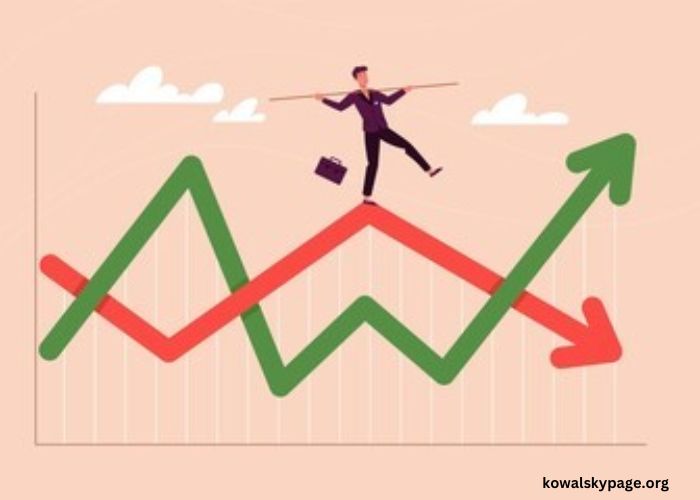The technological world has been profoundly impacted by numerous breakthroughs in recent decades, but few have captured the imagination—and the investment—of industries like blockchain technology. Originally popularized through cryptocurrencies like Bitcoin, blockchain has rapidly evolved into a versatile and transformative force that is reshaping sectors ranging from finance to healthcare and beyond. In this article, we explore how blockchain is revolutionizing the tech landscape, with a focus on its core principles, practical applications, and potential for future innovation.
What is Blockchain?
At its core, blockchain is a decentralized, distributed ledger technology that allows for secure, transparent, and tamper-proof record-keeping without the need for a central authority or intermediary. Think of it as a digital chain of blocks where each “block” contains a batch of validated transactions. These blocks are cryptographically linked together, forming a continuous chain that spans across multiple computers, often referred to as nodes, within a network.
This decentralized nature of blockchain makes it highly resilient to censorship, fraud, and hacking. Every participant in the network has access to the same data, ensuring full transparency. Once data is recorded in a block and added to the chain, it is immutable—meaning it cannot be altered or deleted without detection.
Blockchain’s Impact on Various Tech Sectors
- Finance and Cryptocurrency
Blockchain’s most well-known application is in the financial sector, particularly in cryptocurrencies like Bitcoin and Ethereum. These digital currencies leverage blockchain to provide secure, fast, and low-cost transactions without the need for banks or other intermediaries.
Cryptocurrencies are just one of the ways blockchain is disrupting traditional finance. Beyond digital currencies, blockchain enables decentralized finance (DeFi), a new financial ecosystem that allows individuals to engage in activities like lending, borrowing, and trading directly with one another through smart contracts, which are self-executing agreements coded into the blockchain.
For example, decentralized exchanges (DEXs) and lending platforms powered by blockchain technologies enable faster and more inclusive financial services. This is particularly transformative for underbanked populations in regions where traditional banking infrastructure is limited or nonexistent.
- Supply Chain Management
Blockchain is also making waves in supply chain management by enhancing transparency and traceability. In traditional supply chains, verifying the origin and journey of products can be cumbersome and prone to error. Blockchain allows for each product or material to be tracked in real-time as it moves from supplier to manufacturer to consumer, with every transaction recorded securely on the blockchain.
For instance, retailers can use blockchain to ensure that the goods they sell are ethically sourced, environmentally friendly, or meet specific quality standards. In industries like food, pharmaceuticals, and luxury goods, this level of transparency helps to reduce fraud, combat counterfeit products, and ensure compliance with regulations.
- Healthcare and Medical Records
In the healthcare sector, blockchain holds the promise of revolutionizing how patient data is stored and shared. By utilizing blockchain for medical records, patients can control their own health data while providing permission for trusted professionals and institutions to access it. This could eliminate inefficiencies caused by fragmented records and ensure that sensitive medical information is secure.
Blockchain can also be leveraged in clinical trials to improve data integrity. As each step of the trial process is recorded on the blockchain, researchers can ensure the authenticity and accuracy of trial results, preventing data manipulation or fraud.
- Smart Contracts and Automation
One of the most promising aspects of blockchain technology is its ability to support smart contracts. These are self-executing contracts with the terms of the agreement directly written into code. They automatically execute actions once predefined conditions are met, removing the need for intermediaries or manual oversight.
Smart contracts can be used in a wide range of applications, from facilitating real estate transactions to automating insurance claims and even in the creation of decentralized applications (dApps). By reducing the need for human intervention, blockchain-driven automation can help minimize errors, reduce costs, and improve efficiency.
- Cybersecurity
Blockchain has significant implications for cybersecurity. Since data on a blockchain is decentralized and encrypted, it is far less vulnerable to hacking compared to centralized databases. Cyberattacks, such as data breaches and distributed denial-of-service (DDoS) attacks, are more difficult to carry out due to the distributed nature of blockchain networks.
Moreover, blockchain’s potential to provide secure authentication systems is a game-changer. For example, identity verification could be made much more secure using blockchain-based digital IDs, protecting users from identity theft and fraud. Blockchain could also be utilized in securing IoT devices, ensuring that communications between devices are tamper-resistant.
The Challenges Ahead
Despite its enormous potential, blockchain faces several challenges that need to be addressed for it to realize its full promise.
- Scalability: Many blockchain networks, especially those that rely on proof-of-work consensus mechanisms (such as Bitcoin), face issues related to scalability. Transaction speeds are slower compared to centralized systems, and the energy consumption of these networks is a growing concern.
- Regulation: Governments and regulatory bodies are still working to understand and regulate blockchain technology. The lack of a clear regulatory framework, especially in areas like cryptocurrency, creates uncertainty for businesses and investors.
- Adoption and Integration: Many legacy systems are not yet compatible with blockchain technology. Integrating blockchain into existing infrastructures requires significant investment and may encounter resistance from traditional industries that are reluctant to embrace change.
The Future of Blockchain
As blockchain continues to evolve, its potential to transform the tech landscape is immense. Innovations like Ethereum 2.0 and layer-2 scaling solutions are already working to address scalability and energy efficiency concerns, making blockchain technology more viable for widespread adoption. The ongoing development of interoperable blockchains and cross-chain solutions will further enhance the technology’s reach and flexibility.
Furthermore, blockchain is poised to play a crucial role in emerging fields like the metaverse, decentralized autonomous organizations (DAOs), and the Internet of Things (IoT). These decentralized ecosystems are beginning to come to life, and blockchain provides the foundational technology for trust, transparency, and security in these rapidly growing domains.
In conclusion, blockchain technology is revolutionizing the tech landscape by challenging traditional models of trust, security, and decentralization. While there are hurdles to overcome, the transformative potential of blockchain across multiple industries makes it one of the most exciting developments in technology today. As the technology matures and becomes more widely adopted, we can expect it to continue reshaping the way we interact with the digital world.





